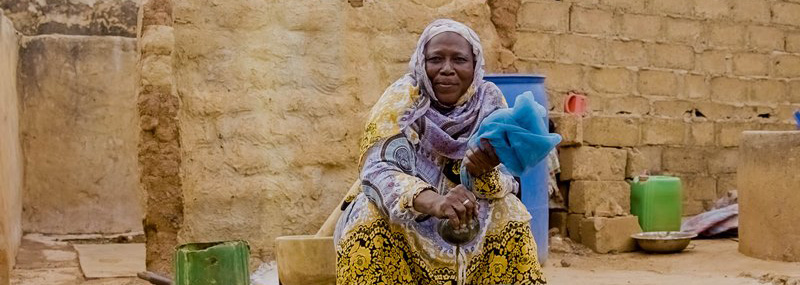Climate change is one of the greatest existential threats of our time today. For decades it has consistently destroyed the foundations of human civilization exposing the most vulnerable communities, which don’t have the power or the means to fully protect themselves from the destruction caused by global warming. Worse still, these devastating effects are fuelling the outbreak of pandemics such as the Corona virus disease, which has shown that our present model to counter climate change is not sustainable.
The communities most affected by climate change
The Sahel in West Africa is one of the regions that has borne the brunt of global warming with impact not only being felt environmentally, but also at the socio-economic level. Rainfall patterns have become so unpredictable forcing farmers to cope with fewer and shorter planting seasons- an action that is undermining food security. The search for firewood as a major resource has become problematic and is fuelling deforestation with populations at the risk of scarce food and water for survival.
Beyond floods, tsunamis and prolonged seasons of drought, the effects of climate change threaten our biodiversity leading to a significant loss of species and affecting food diversity. The inter-connected nature and functions of ecosystems have equally been affected contributing to forced migration across borders with significant challenges on human rights. In fact, experts have also concluded that by 2030, there will be tens of millions of climate change refugees who will be forced to leave their villages and communities in search of more liveable habitats as a coping mechanism. Women, children, the youth, ethnic communities form a significant proportion of these groups that have been affected disproportionately by structural inequalities from migration grappling with lack of food, water, proper shelter and secure livelihoods.
Locally adapted solutions to mitigate climate change
In Africa, a movement around local solutions to promote climate change adaptation that is strengthening the resilience of populations most affected has been growing. In 2016, the first conference in Africa on biogas technology was convened by the Africa Biogas Partnership Program- jointly executed by Hivos and SNV- to bring together diverse voices and experts in the renewable energy sector. During discussions around the renewable energy debate, countries such as Burkina Faso were quick to declare that the bio-digester technology offers local solutions where communities can protect themselves and their livelihoods from the negative impact of climate change. By moving their commitment from paper to action, Burkina Faso progressively took leadership to mobilize other countries in the West and Central Africa (WCA) region to promote the dissemination of this technology.
This action has led to a movement in West and Central Africa known as the WCA Alliance which birthed the Ouagadougou Declaration in 2017. The statutes of this Declaration have been promising where eight countries namely: Benin, Burkina Faso, Cote d’Ivoire, Guinea, Mali, Niger, Senegal and Togo agreed to establish national biogas programs that will go a long way in solving the most pressing problems bred by climate change in their states.
This growing iconic movement shows that locally- led adaptation initiatives around climate change can only be successful when decision making is decentralised to local communities who have a voice and the power to build resilience in coping with this crisis.
Hivos working with allies in West and Central Africa
Hivos has been a key linking agent in supporting the WCA Alliance particularly by partnering with the government of Burkina Faso through the National Bio-Digester Program (PNB-BF) to lobby parliaments of the alliance countries to formally ratify the declaration. In July 2020, the parliament of Benin was the sixth to approve the engagement of their country in The WCA Alliance. This sixth signature enabled the Alliance to organize its first Ministerial Council in December 2020 where an interim team was appointed with the objective of recruiting a permanent team that will be responsible for formulating the 5-year strategic plan and also, lay the foundation to attract membership of more states to amplify the movement. By creating an Alliance, member states are individually executing their ambitions of promoting locally adapted solutions for their rural communities. It is a prime example of effective national leadership in climate change adaptation.
The culmination of this significant move is credited to the Government of Burkina Faso in steering the process in West Africa. The success of its program : PNB-BF has proven that simple solutions such as the bio-digester technology offers rural populations immense opportunities in countering the effects of climate change where as custodians of their ecosystem they have the power to regenerate and rehabilitate the environment.




